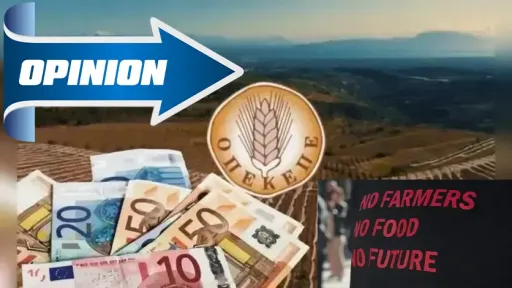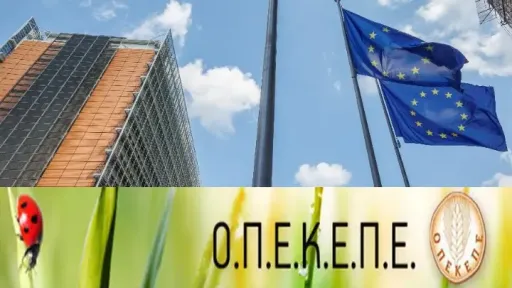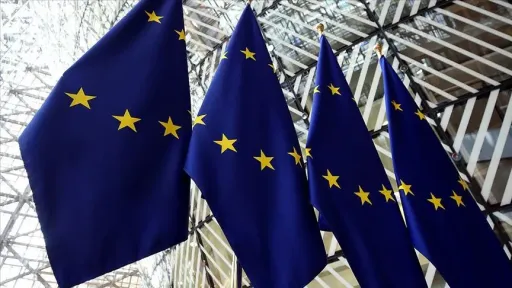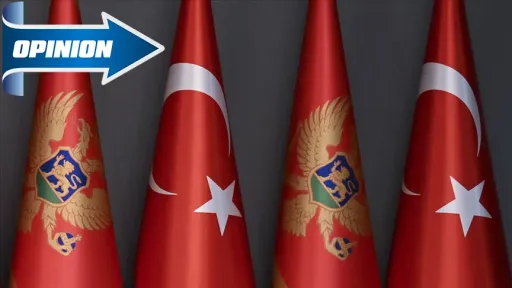Analysis: EU subsidy scandal leaves Greece with no place to hide

Athens’ mismanagement of EU agricultural subsidies is not a static failure but a rapidly growing vortex of fraud, political negligence and institutional collapse.
The vast network of agricultural subsidies that once formed the backbone of Greece’s rural economy now stands exposed as a yawning chasm of mismanagement and corruption.
What began as administrative negligence has evolved into a systemic fraud ecosystem: by October 2025, authorities had arrested individuals linked to illicit land claims and millions in unauthorised payouts, while farmers reported a funding gap of up to €600 million in unpaid subsidies.
Critically, internal assessments now estimate that the total financial damage could exceed €1 billion, making this one of the largest subsidy scandals in the European Union’s recent history.
As investigations expand, new reports have exposed the breadth of the fraud network and how years of political negligence allowed the scandal to metastasise into a national crisis.
The accusations have been reinforced by sweeping arrests in Greece over EU farm subsidy fraud, repeated warnings from EU prosecutors, and mounting evidence presented by farmers who now face a massive funding shortfall.
The scandal did not erupt overnight.
For years, Greece’s subsidy system was riddled with opaque land registrations, fabricated field sizes, and networks of intermediaries who exploited weak oversight mechanisms inside the Greek government agency, OPEKEPE.
Early internal warnings dating back to 2020 were repeatedly ignored, allowing fraudulent claims to expand unchecked while political appointees within the agency focused more on cultivating patronage networks than enforcing agricultural compliance rules.
By 2024, auditors had already flagged severe discrepancies between declared farmland and satellite-verified acreage across multiple regions, yet no corrective measures were taken.
As successive governments downplayed the risks, the subsidy scheme evolved into a lucrative ecosystem where fake beneficiaries multiplied, oversight collapsed, and the gap between Brussels’ expectations and Athens’ actual capacity widened dramatically.
When a scandal turned into a political crisis
By mid-2025, the accumulated failures inside OPEKEPE could no longer be concealed.
Farmers across multiple regions began reporting severe delays in their annual payments, a problem first documented in a detailed investigation into illicit subsidy networks by Greek police and EU prosecutors.
The government insisted that the European Commission had withheld approval for the disbursement process — a claim Brussels officials flatly contradicted during a public statement from the European Commission in Athens.
According to the Commission, member-states were fully empowered to release the funds using national resources, meaning the bottleneck had nothing to do with EU procedures and everything to do with Athens’ inability to manage its own subsidy infrastructure.
This public contradiction intensified scrutiny, revealing that senior officials had been aware of structural weaknesses at OPEKEPE since at least 2019.
Instead of reforming the agency, successive administrations allowed the problems to fester, turning a manageable oversight issue into a full-scale governance crisis that called into question Greece’s credibility as a steward of European funds.
Between 2017 and 2020, the foundations of the OPEKEPE scandal were quietly laid.
During this period, networks of intermediaries began exploiting long-standing loopholes in Greece’s agricultural land registry, inserting fabricated parcel sizes and creating entire lists of ghost beneficiaries that went largely unchallenged.
As political appointees steadily replaced experienced administrators inside OPEKEPE, institutional oversight eroded, allowing these irregularities to spread unchecked and transforming what should have been a tightly supervised subsidy system into a fertile environment for systematic manipulation.
By the summer of 2020, the first clear warning signs began to surface.
Internal reports flagged suspicious land claims linked to organised groups operating across several regions, while satellite imagery repeatedly contradicted the official declarations submitted to OPEKEPE.
Yet, despite the inconsistencies, no corrective measures were taken.
At the same time, early media investigations started drawing attention to irregularities in the subsidy system, including initial allegations of large-scale manipulation—signals that, had they been addressed promptly, might have prevented the scandal from expanding into one of the largest financial failures in Greece’s recent history.
Between 2021 and 2023, institutional complacency allowed the problem to deepen.
Audit reports repeatedly highlighted major discrepancies between the acreage farmers declared and the actual farmland verified through satellite checks, yet successive governments avoided undertaking the structural reforms needed to fix the system.
With enforcement mechanisms deteriorating and political reluctance to challenge entrenched networks, fictitious claims expanded rapidly, turning subsidy fraud from a manageable irregularity into an embedded feature of Greece’s agricultural payment machinery.
The system starts to collapse
By 2024, the subsidy system began to buckle under the weight of years of neglect.
Payment delays intensified across multiple regions, prompting farmers to stage public protests over mounting administrative failures.
At the same time, leaked internal memos confirmed that OPEKEPE’s leadership had long been aware of deep “structural vulnerabilities” within the agency but had taken no meaningful steps to address them.
Fraud schemes also grew more sophisticated, expanding from simple false declarations into coordinated land swaps and forged documentation networks—evidence that the system was no longer merely mismanaged, but increasingly driven by organised and adaptive criminal structures.
The pressure intensified further after EU audit findings highlighted major inconsistencies in Greece’s management of agricultural subsidies—conclusions that contradicted years of government assurances.
Instead of acknowledging the structural failures, the government continued to blame “EU approval issues” for the delays in payments, even as internal documents showed that the bottleneck stemmed from Athens’ own administrative paralysis.
What had long been dismissed as isolated anomalies has now clearly evolved into a nationwide governance failure.
Governance failure with continental consequences
The scandal has now grown far beyond a case of subsidy mismanagement and transformed into a full-scale financial and political crisis.
Newly surfaced documents indicated that the total financial damage may exceed €1 billion, a figure that underscored how deeply the fraud networks had penetrated Greece’s agricultural payment system.
At the same time, Brussels publicly contradicted the Greek government’s narrative during a European Commission briefing in Athens, making clear that member states were fully empowered to release payments using national resources — a direct challenge to Athens’ repeated claims of “EU-related delays”.
With these revelations, the scandal evolved into a broader governance crisis, raising serious questions about Greece’s credibility as a responsible steward of European funds and exposing the institutional fragility that allowed the black hole to expand unchecked for nearly a decade.
The OPEKEPE scandal is no longer simply a story of fraudulent claims or bureaucratic negligence.
It is a revealing case study of how fragile governance, political complacency and weak oversight can erode a core pillar of a member state’s economic system — even under the scrutiny of the European Union.
As Greece confronts the consequences of nearly a decade of unaddressed vulnerabilities, the widening subsidy black hole raises urgent questions that Brussels can no longer ignore: How did a country receiving billions in CAP funds fail to detect such vast irregularities, why were repeated warnings dismissed, and what does this mean for Europe’s credibility in safeguarding taxpayer money?
The answers will shape not just Athens’ domestic political landscape, but also the EU’s confidence in its own ability to police financial integrity among its member states.
By Burak Uzun
SOURCE:TRT World







